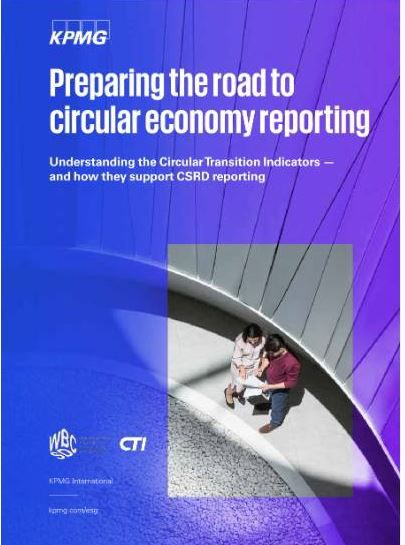In a circular economy, companies are incentivized to reuse products and components, minimize use of scarce resources, reduce greenhouse gas emissions (GHG), waste and pollution, and treat the environment with respect, to regenerate nature.
The WBCSD Circular Transition Indicators (CTI) provide companies with a framework for measuring circularity, to support decision making and transparency in the transition towards a more circular business.
The EU’s groundbreaking Corporate Sustainability Reporting Directive (CSRD) requires companies to report on sustainability in line with the European Sustainability Reporting Standards (ESRS), containing the reporting and disclosure requirements.
This paper offers guidance on how to use the CTI framework to help collect the relevant information and insights that can be used for reporting on the requirement as published in the ESRS E5 draft of June 2023, in relation to the CSRD. Although the focus is on ESRS E5, CTI also supports companies on various elements of the other environmental reporting standards ESRS E1-4.
Why work with KPMG in Thailand
KPMG in Thailand, with more than 2,000 professionals offering Audit and Assurance, Legal, Tax, and Advisory services, is a member firm of the KPMG global organization of independent member firms affiliated with KPMG International Limited, a private English company limited by guarantee.

